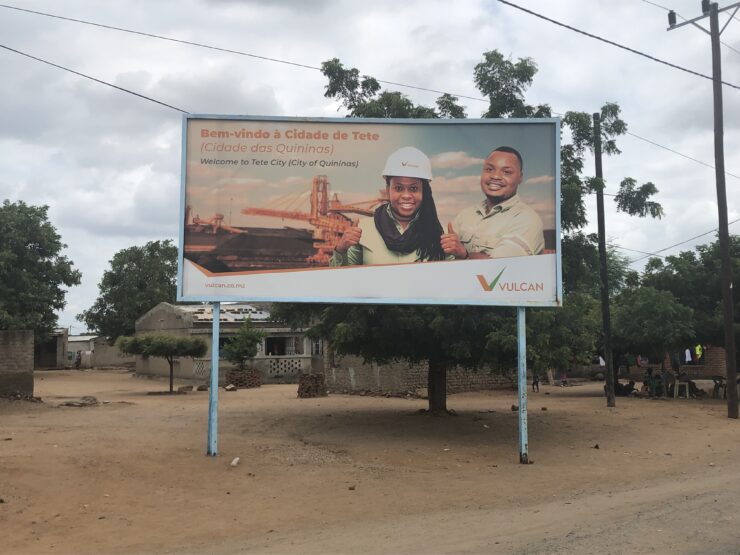Nieuws
Blog: Coal Urbanism – Everyday life in the Mozambican coal frontier

A mining firm’s signboard that says “Welcome to Tete City” Photo by Hiroyuki Tsuji
Hello everyone, my name is Hiroyuki Tsuji, a PhD candidate at the Department of Human Geography and Spatial Planning at Utrecht University. My research interest is about the evolution of extractive urbanism around Tete and Moatize cities in Tete province, Mozambique, and how different people in these areas have been coping with the evolution of the coal industry.
I will write this blog based on my fieldwork experience in Tete province. I began my fieldwork for my research in April 2022, but my first connection to Tete started well before. In 2013, I was working in Maputo and visited Tete as a part of a Japanese delegation. Looking back now, this short time trip was a turning point. We had the opportunity to visit Brazilian Vale’s mine, the largest in the region, and I still recall that I was very much impressed by the landscape inside the mine. It was highly artificial (industrial) and the dimension of the project was beyond my imagination. I felt as if I was somewhere else, not Mozambique. Outside the mine, I was also surprised by the level of local development associated with coal mining. Tete city was busy and there were nice restaurants and even a 4-star hotel run by the Radisson group. This remarkable encounter with Tete always interested me in the interaction between (coal) mining and urbanisation, which led me to pursue my research.
As global environmental concerns about the use of fossil fuels intensify, coal is now facing its turning point. The energy transition has changed coal’s status, once the principal energy source since the Industrial Revolution. This shift will certainly affect people’s lives in the coal mining region. How has coal altered local people’s original lives and livelihoods? How do coal mining and different people on the ground interact, and what are the results of those interactions? What are the implications of the energy transition for the coal mining region and its residents? These are some of the questions that I had before starting my fieldwork. Through this blog, I would like to output and share my learnings, impressions, and thoughts from the field. I hope I will be able to share little pieces of everyday life in the Mozambican coal frontier.

